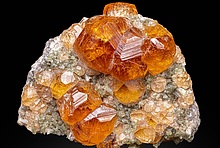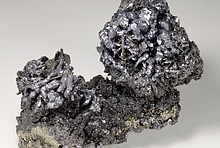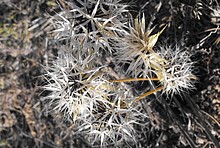Home PageAbout MindatThe Mindat ManualHistory of MindatCopyright StatusWho We AreContact UsAdvertise on Mindat
Donate to MindatCorporate SponsorshipSponsor a PageSponsored PagesMindat AdvertisersAdvertise on Mindat
Learning CenterWhat is a mineral?The most common minerals on earthInformation for EducatorsMindat ArticlesThe ElementsThe Rock H. Currier Digital LibraryGeologic Time
Minerals by PropertiesMinerals by ChemistryAdvanced Locality SearchRandom MineralRandom LocalitySearch by minIDLocalities Near MeSearch ArticlesSearch GlossaryMore Search Options
The Mindat ManualAdd a New PhotoRate PhotosLocality Edit ReportCoordinate Completion ReportAdd Glossary Item
Mining CompaniesStatisticsUsersMineral MuseumsClubs & OrganizationsMineral Shows & EventsThe Mindat DirectoryDevice SettingsThe Mineral Quiz
Photo SearchPhoto GalleriesSearch by ColorNew Photos TodayNew Photos YesterdayMembers' Photo GalleriesPast Photo of the Day GalleryPhotography
╳Discussions
💬 Home🔎 Search📅 LatestGroups
EducationOpen discussion area.Fakes & FraudsOpen discussion area.Field CollectingOpen discussion area.FossilsOpen discussion area.Gems and GemologyOpen discussion area.GeneralOpen discussion area.How to ContributeOpen discussion area.Identity HelpOpen discussion area.Improving Mindat.orgOpen discussion area.LocalitiesOpen discussion area.Lost and Stolen SpecimensOpen discussion area.MarketplaceOpen discussion area.MeteoritesOpen discussion area.Mindat ProductsOpen discussion area.Mineral ExchangesOpen discussion area.Mineral PhotographyOpen discussion area.Mineral ShowsOpen discussion area.Mineralogical ClassificationOpen discussion area.Mineralogy CourseOpen discussion area.MineralsOpen discussion area.Minerals and MuseumsOpen discussion area.PhotosOpen discussion area.Techniques for CollectorsOpen discussion area.The Rock H. Currier Digital LibraryOpen discussion area.UV MineralsOpen discussion area.Recent Images in Discussions
GeneralEthically Mined Crystals

28th Dec 2016 04:36 UTCkayma Englund

28th Dec 2016 06:39 UTCAlfredo Petrov Manager
Many small-scale mines actually produce ecological benefits by increasing the habitat diversity in their area after they are abandoned (bat habitat, for example).
As for the "civil working conditions" part, much depends on the wealth of the country one is talking about. Naturally miners in Sweden enjoy better working conditions than miners in the Congo. But again, put it into context: What are the miners' working conditions in country XYZ compared to the conditions of other workers in that country? I worked with miners in Bolivia for many years. It's a relatively poor country. Miners worked in what would be (to us) considered horrible conditions, but most of them were proud to be miners, and earned better money than farmers or other workers in Bolivia. Miners' kids went to better schools than rural farmers' kids did, and had better access to health care. So, although their standard of living would look miserable to someone from Copenhagen or Tokyo, they would have been very very angry if you tried to close down their mining operation and tell them to look for other work! (And you do NOT want to mess with angry Bolivian miners! ;-) )

28th Dec 2016 13:09 UTCkayma Englund

28th Dec 2016 14:19 UTCJeffrey Shallit
http://bigstory.ap.org/article/0427c669a4824bb9bbe5ab2a0f4341d2/afghan-mineral-wealth-being-looted-strongmen-experts-say
28th Dec 2016 14:45 UTCReiner Mielke Expert
The same can be said for oil and a lot of other different things. I think politics should be kept out of mineralogy. Besides, this subject is far to complex and out of the control of mineral collectors to worry about it.
28th Dec 2016 15:49 UTCChristian Auer 🌟 Expert
Some parts were published in 2011: https://pure.unileoben.ac.at/portal/de/publications/fingerprinting-of-conflict-minerals-from-central-africa-the-coltan-case(0835b383-c996-41af-846e-e551248ad9e1).html

28th Dec 2016 17:51 UTCWolfgang Hampel 🌟 Expert
There are a couple of companies/cooperations offering "fair trade" gold, gemstones and sometimes minerals. Just put "fair trade gemstones" in the search machine of your choice. I work since almost 30 y in the mining/exploration/minerals sector, mainly in Africa, and have seen many small scale mining operations. To date I have never visited one of the "fair trade" mines, so I couldn't tell you how "fair" they are in reality.
"Conflict free/poor" operations are without any doubt Forschungsgemeinschaft Lengenbach in Switzerland, Rogerley in the UK, several pegmatite operations in the US, amethyst mining in Canada, or the work of professional "strahler" in Austria and Switzerland just to name a few.
Typically bad examples are mainly found in the poorest/most corrupt countries, and even there are exceptions. But again, it is a dilemma: in many cases these small scale mining operations help whole families to survive in regions where they would otherwise starve.
Chemical "fingerprinting" like the one mention by Christian is a well-intentioned idea, but not more than that. Coltan, i.e. columbite-tantalite, compositions may vary so widely within the same pegmatite occurrence, that this chemical fingerprinting becomes obsolete. Let alone the fact that the assay methods needed to study the "coltan" are never found in the questioned countries.
Wolfgang

28th Dec 2016 18:34 UTCkayma Englund

28th Dec 2016 20:09 UTCWolfgang Hampel 🌟 Expert
I cannot prove what I am saying, but when it comes to "metaphysical" shops the percentage is very close to 0%. Their intention is to sell mostly completely overpriced junk to an ignorant clientele. As sad as it is, but this is the truth.
Wolfgang

28th Dec 2016 23:23 UTCUdo Behner

5th Jan 2017 16:04 UTCkayma Englund

5th Jan 2017 19:45 UTCMatt Ciranni

5th Jan 2017 20:31 UTCAlfredo Petrov Manager
5th Jan 2017 22:19 UTCReiner Mielke Expert
6th Jan 2017 03:11 UTCKeith Compton 🌟 Manager
And don't forget there are also many specimens that have been collected illegally from various sites around the world, whether it be petrified wood from a protected national park, native silver from a mexican mine or any mineral from where ever. It is virtually impossible to guarantee that something has been "ethically" collected unless you have found it yourself ... but even then, did you find it on private land and without the owner's permission - even unknowingly!!. Probably all minerals collectors have at some time acquired/found minerals that have some doubt as to their true ethicality.
Perhaps there are degrees of ethics that we are able to tolerate !!
In my view, unless a government has placed a ban on any particular gems/minerals (such as for conflict diamonds) I don't think that I would worry too much.
In that sense, I'm with Alfredo.
Cheers
Keith

6th Jan 2017 03:15 UTCD. Peck
6th Jan 2017 12:41 UTCReiner Mielke Expert
6th Jan 2017 23:04 UTCGregg Little 🌟
Anecdotally, I was once chastised by friends for destroying the Amazon rain-forest after returning from a gold exploration project in the Dem. Rep. of Congo. Adding to the irony of her not knowing which continent I was on, her fingers sported a couple of diamond and gold rings and get this, to boot they were drinking a showy liquor with suspended fine gold flakes!!!
In our hobby one of the last things we should worry about is ethics as most of people would rather satisfy their only wants and desires before considering the ethics of their decisions. My country recently demonstrated this hypocrisy when my government only a month ago announced a coming comprehensive ban on asbestos even though they knew of its serious health effects for decades.




Mindat.org is an outreach project of the Hudson Institute of Mineralogy, a 501(c)(3) not-for-profit organization.
Copyright © mindat.org and the Hudson Institute of Mineralogy 1993-2024, except where stated. Most political location boundaries are © OpenStreetMap contributors. Mindat.org relies on the contributions of thousands of members and supporters. Founded in 2000 by Jolyon Ralph.
Privacy Policy - Terms & Conditions - Contact Us / DMCA issues - Report a bug/vulnerability Current server date and time: April 19, 2024 21:57:36
Copyright © mindat.org and the Hudson Institute of Mineralogy 1993-2024, except where stated. Most political location boundaries are © OpenStreetMap contributors. Mindat.org relies on the contributions of thousands of members and supporters. Founded in 2000 by Jolyon Ralph.
Privacy Policy - Terms & Conditions - Contact Us / DMCA issues - Report a bug/vulnerability Current server date and time: April 19, 2024 21:57:36










